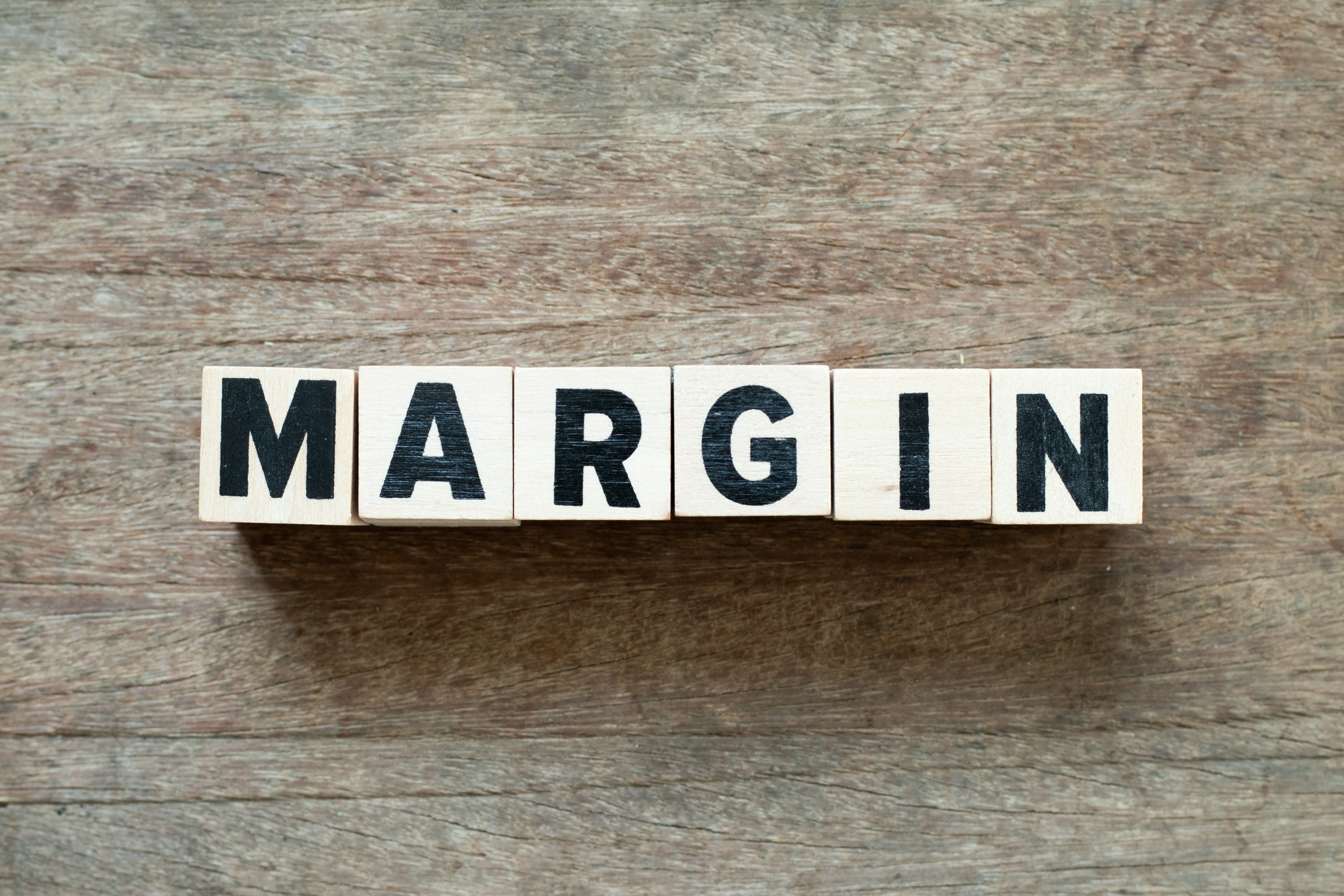Commission-Free Trades: A Bad Deal for Investors
Four of the biggest online brokers just cut their commissions to $0 per transaction. Be careful, or you could be a big loser.


Profit and prosper with the best of Kiplinger's advice on investing, taxes, retirement, personal finance and much more. Delivered daily. Enter your email in the box and click Sign Me Up.
You are now subscribed
Your newsletter sign-up was successful
Want to add more newsletters?

Delivered daily
Kiplinger Today
Profit and prosper with the best of Kiplinger's advice on investing, taxes, retirement, personal finance and much more delivered daily. Smart money moves start here.

Sent five days a week
Kiplinger A Step Ahead
Get practical help to make better financial decisions in your everyday life, from spending to savings on top deals.

Delivered daily
Kiplinger Closing Bell
Get today's biggest financial and investing headlines delivered to your inbox every day the U.S. stock market is open.

Sent twice a week
Kiplinger Adviser Intel
Financial pros across the country share best practices and fresh tactics to preserve and grow your wealth.

Delivered weekly
Kiplinger Tax Tips
Trim your federal and state tax bills with practical tax-planning and tax-cutting strategies.

Sent twice a week
Kiplinger Retirement Tips
Your twice-a-week guide to planning and enjoying a financially secure and richly rewarding retirement

Sent bimonthly.
Kiplinger Adviser Angle
Insights for advisers, wealth managers and other financial professionals.

Sent twice a week
Kiplinger Investing Weekly
Your twice-a-week roundup of promising stocks, funds, companies and industries you should consider, ones you should avoid, and why.

Sent weekly for six weeks
Kiplinger Invest for Retirement
Your step-by-step six-part series on how to invest for retirement, from devising a successful strategy to exactly which investments to choose.
Commissions on stocks and exchange-traded funds (ETFs) now come to a big fat zero if you use one of the four biggest online brokerages.
On Oct. 1, Charles Schwab (SCHW) announced commission-free trading on stocks, ETFs and options trades. Online-broker rivals E*Trade (ETFC) and TD Ameritrade (AMTD) followed suit within 24 hours, and Fidelity fell in line within a week.
Online trades were already incredibly cheap: Schwab and Fidelity charged $4.95 for each trade. It was only a little more expensive ($6.95) at E*Trade and TD Ameritrade. Still, money is money. So isn’t a zero-dollar trade a clear win for individual investors?
From just $107.88 $24.99 for Kiplinger Personal Finance
Become a smarter, better informed investor. Subscribe from just $107.88 $24.99, plus get up to 4 Special Issues

Sign up for Kiplinger’s Free Newsletters
Profit and prosper with the best of expert advice on investing, taxes, retirement, personal finance and more - straight to your e-mail.
Profit and prosper with the best of expert advice - straight to your e-mail.
I don’t think so.
In fact, I think many investors are going to end up paying through the nose for these “free trades” in a way they didn’t expect.
The Cost of No-Commission Trading
Over the years, I’ve heard from several clients who have had trouble disciplining themselves from trading too frequently. That was in a low-cost world.
Now that trades are no-cost, it’s going to get a lot worse.
It’s difficult enough to match, much less beat, stock indexes without the drag of frequent trading. Frequent traders, from my experience, rarely do well in the stock market.
Terrance Odean – the Rudd Family Foundation Professor and Chair of the Finance Group at the Haas School of Business, University of California, Berkeley – performed several studies earlier this decade using trading data from a discount brokerage.
In one study, he found that trading costs did indeed weigh on the performance of investors who traded more frequently – a problem that no-commission accounts will render obsolete.
But no-commission trades won’t do anything about the results garnered from another study. Odean found that, “on average, the stocks that these investors bought went on to underperform the stocks they sold.”
Speculative trading (trades that didn’t seem driven by, say, tax purposes or rebalancing concerns) was even worse. Across all trades, stocks that investors bought underperformed those they sold by three percentage points – but that disparity widened to five percentage points when considering only speculative trades.
The zero-commission trade is bound to amplify the low-cost proposition of exchange-traded funds, accelerating the huge migration of investor dollars away from actively managed mutual funds. At TD Ameritrade, for instance, it still costs $49.99 to buy or sell some no-load mutual funds. And that doesn’t include the funds’ annual expense ratios. Who’s going to want to buy them when many ETFs’ management expenses are cheaper and are free to enter?
Now, if investors simply stuck to buying broad-based index ETFs and holding them, that actually would be a good thing.
But what’s far more likely is that a big swath of these investors will trade more – and try to pick ETFs and stocks that will beat the market over short time periods. After all, the trade is free – why not make it?
“Free trading doesn’t help investors. It only encourages bad behavior,” says Daniel Wiener, editor of The Independent Adviser for Vanguard Investors newsletter. “As someone who’s been managing client assets for more than 25 years, we talk about ‘time in the market, not market timing’ because long-term investing works.”
I couldn’t agree more.
Pressure Mounts on Brokerages
Then there’s the question of how these brokerages are going to make a buck. That’s not my problem or yours – yet. But it will be if it leads brokerages to increase their profits through hidden charges on investments, which it could well do.
In recent years, bid/ask spreads – the difference in price between what you can buy and a sell a stock for – have narrowed substantially to a penny or two on most trades. What some investors don’t realize is that those spreads represent the compensation that market makers take for facilitating the trades. Those spreads could widen as brokerages seek to fly in new revenue-generating methods under the radar.
Brokerages also make meaningful profits on idle cash in investor accounts. They pay too little on money market funds and they make it cumbersome to move your cash into and out of them. Fidelity, however, plans to automatically sweep idle investor cash into a government money market fund, thus forgoing much of the profit on money markets.
Margin accounts – where traders borrow against their existing holdings to invest more – are another big source of brokerage profits. And brokerages might need to lean on them more, potentially raising rates, to fill this new gap.
Brokerages also squeeze money out of mutual funds. They charge the funds an ongoing fee for offering funds on their platform, including much higher fees for offering them commission-free. Pay close attention to these fees; over time, they can cost you big money. Often, you are better off paying the small upfront commission when buying a fund.
The stocks of all three publicly traded brokerages that cut their commissions to zero cratered after the announcements. TD Ameritrade suffered the most because it’s seen as more dependent on trading income than the others. While their stocks have recovered somewhat since then, there’s no question that their businesses will take a hit. They’ll try to recover what revenues they can.
The trick for individual investors: Instead of trading more, use this sea change in the industry as an opportunity to trade even less.
If you continue to find yourself trading too much, it’s probably time to hire an investment advisor. Having the knowledge to be a good investor doesn’t make you one. The emotional side of investing is every bit as important.
Steve Goldberg is an investment adviser in the Washington, D.C., area.
Profit and prosper with the best of Kiplinger's advice on investing, taxes, retirement, personal finance and much more. Delivered daily. Enter your email in the box and click Sign Me Up.

-
 Dow Adds 1,206 Points to Top 50,000: Stock Market Today
Dow Adds 1,206 Points to Top 50,000: Stock Market TodayThe S&P 500 and Nasdaq also had strong finishes to a volatile week, with beaten-down tech stocks outperforming.
-
 Ask the Tax Editor: Federal Income Tax Deductions
Ask the Tax Editor: Federal Income Tax DeductionsAsk the Editor In this week's Ask the Editor Q&A, Joy Taylor answers questions on federal income tax deductions
-
 States With No-Fault Car Insurance Laws (and How No-Fault Car Insurance Works)
States With No-Fault Car Insurance Laws (and How No-Fault Car Insurance Works)A breakdown of the confusing rules around no-fault car insurance in every state where it exists.
-
 Best Mutual Funds to Invest In for 2026
Best Mutual Funds to Invest In for 2026The best mutual funds will capitalize on new trends expected to emerge in the new year, all while offering low costs and solid management.
-
 Best 401(k) Investments: Where to Invest
Best 401(k) Investments: Where to InvestKnowing where to find the best 401(k) investments to put your money can be difficult. Here, we rank 10 of the largest retirement funds.
-
 Fidelity Strategic Income Fund Excels In Hard Year for Bonds
Fidelity Strategic Income Fund Excels In Hard Year for BondsThe fixed-income market was volatile in 2023, but this Fidelity bond fund outperformed its peers thanks to strategic moves by management.
-
 What Is Margin Trading?
What Is Margin Trading?Margin trading is buying and selling stocks with borrowed money. It can generate big rewards, but margin trading also involves multiple risks.
-
 How to Find the Best 401(k) Investments
How to Find the Best 401(k) InvestmentsMany folks are likely wondering how to find the best 401(k) investments after signing up for their company's retirement plan. Here's where to get started.
-
 How to Master Index Investing
How to Master Index InvestingIndex investing allows market participants the ability to build their ideal portfolios using baskets of stocks and bonds. Here's how it works.
-
 Choosing Between Look-Alike ETFs and Mutual Funds
Choosing Between Look-Alike ETFs and Mutual FundsIf you're trying to choose between ETFs and Mutual Funds, some factors to help you decide are how you trade and the type of account you plan to use.
-
 How Direct Indexing Could Work for You
How Direct Indexing Could Work for YouTax efficiency is the primary goal for many new direct indexing offerings, but they come with a lot of caveats.